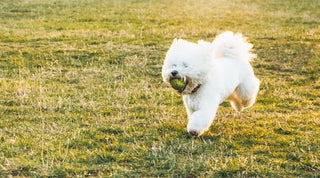Understanding the Importance of Joint Health in Bichon Frises
Bichon Frises are known for their playful disposition and fluffy white coats. As a small breed dog, they are generally healthy, but they can be prone to certain joint issues such as patellar luxation and arthritis. It's important for owners to be proactive in maintaining their Bichon's joint health to ensure a high quality of life throughout their pet's senior years. Keeping your Bichon Frise's joints healthy requires a combination of proper nutrition, exercise, and regular veterinary care.
Essential Nutrition for Joint Support
A balanced diet is crucial for maintaining healthy joints. Foods rich in omega-3 fatty acids, such as fish oil supplements, can help reduce inflammation and promote joint health. Glucosamine and chondroitin supplements are also known to aid in maintaining cartilage and joint fluid. Consider discussing with your vet the possibility of incorporating these supplements into your Bichon's diet, especially if they are middle-aged or showing signs of joint discomfort.
Weight Management
Excess weight can put unnecessary pressure on your dog's joints, which can lead to joint damage and pain. Keeping your Bichon Frise at a healthy weight is therefore essential. Monitor their food intake and be mindful of the calorie content in treats. Regular weigh-ins and consultations with your veterinarian can help you determine the ideal weight for your pet and the best way to achieve it.
Regular Exercise and Physical Activity
Exercise is vital for keeping your Bichon Frise's joints healthy. Regular, low-impact activities such as walking or swimming can keep joints flexible and muscles strong. However, it's important to be mindful of overexertion, as Bichons are energetic but can tire out or injure themselves if they overdo it. Aim for consistent, daily exercise in the form of short walks and play sessions, always being attentive to your dog's energy levels and signs of fatigue.
Preventive Veterinary Care
Routine veterinary checkups can help in early detection and treatment of joint issues before they become severe. Your vet may perform physical examinations to check for signs of joint tenderness or difficulty moving. Regular veterinary visits can also ensure that your Bichon Frise stays up to date on vaccines and preventive care, minimizing the risk of infections that can indirectly affect joint health.
Physical Therapy and Alternative Treatments
In some cases, your veterinarian might suggest physical therapy to improve joint health. Canine physical therapy can include underwater treadmill exercises, gentle stretches, and massages that can help alleviate pain and enhance mobility. Additionally, alternative treatments like acupuncture can be explored, as they may provide relief for some dogs with joint pain.
Daily Care and Monitoring
Paying attention to your Bichon Frise's daily behavior can be one of the simplest yet most effective ways to monitor their joint health. Changes in activity level, difficulties in doing routine actions, or signs of discomfort during movement can all signal potential joint issues. In such cases, it's important to consult with your vet immediately to address any concerns.
Comfortable Resting Areas
Provide your Bichon with a comfortable place to rest and sleep. Orthopedic pet beds can offer additional support for their joints and are particularly beneficial for older dogs. Keeping them warm during colder months and avoiding damp, drafty sleeping areas can also help prevent joint stiffness and discomfort.
Conclusion
Maintaining your Bichon Frise's joint health is a multifaceted approach that involves proper nutrition, exercise, veterinary care, and daily monitoring. By staying proactive in managing these aspects of your Bichon’s health, you can help minimize the risks of joint issues and ensure your furry friend enjoys an active, happy life alongside you.






